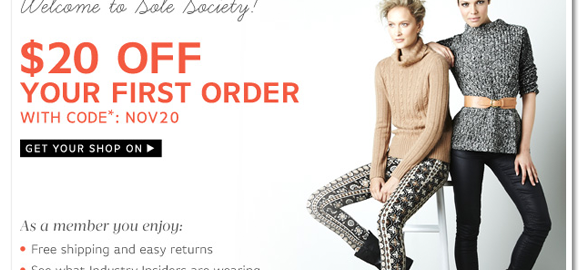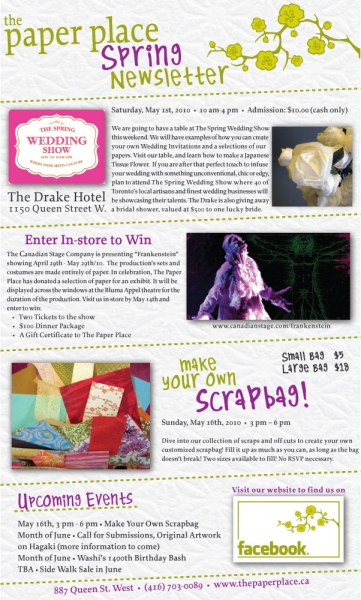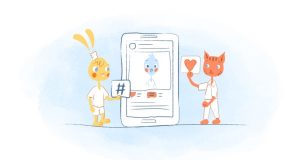By Lisa Furgison, Published November 8, 2014
Getting new email contacts is exciting. That list of new names you’ve grown has a lot of promise in it, that is, if you make the right moves. New contacts can turn into loyal subscribers or frequent customers down the road. To make that a reality, you want to send a variety of emails to start building a relationship.
The first few emails you send to new subscribers are like the first few dates with a potential new interest. You want to make a good first impression, have engaging conversation and feel comfortable with each other. If all goes well, there are many more dates in your future. It’s the same with email marketing. The first emails you send are a way for the two of you to test the waters and see if there’s a connection.
To get you on the right track, here are four emails we recommend sending to your new contacts to help maximize your chances for a long-term relationship – outline these on your sign up page so your newest subscribers know what to expect:
1. Welcome email
The first email you should send is a welcome email. This friendly message serves as the first impression component in your new relationship. The email should welcome the new subscriber, reinforce the decision to sign up, and possibly offer a discount or a deal that’s just for new members. Here’s an example:
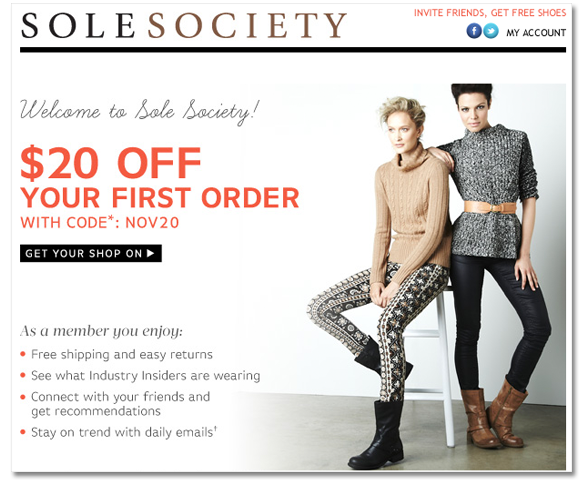
Notice there is a quick welcome message, a $ 20 off coupon code, and a list of benefits that new subscribers get as part of your email family. It’s simple and to the point too; it doesn’t overwhelm the new subscriber with too much information.
To maximize your impact, a new contact should receive a welcome email within 48 hours of signing up.
“When someone first signs up to get on your list, it’s fresh in their mind,” says Austin Paley, corporate marketing communications manager for Blue Fountain Media. “They will actively look for you in their mailbox, which is why you should reach out quickly.”
2. Newsletter
To continue the welcome party, send new contacts a newsletter. Newsletters are a good way to start a conversation between you and your new contact. It offers news and information that can benefit your new subscriber.
Here is an example of a newsletter:
This newsletter talks about upcoming events and a giveaway. Recipients can click on the topics to get more detailed information from the company’s blog.
Some small businesses choose to create a special newsletter for new contacts. This newsletter contains more introductory information like business history and other fun facts about the company.
Of course, newsletters aren’t just something you send at the beginning of an email relationship. They are meant to serve as a regular communications vehicle between your business and your subscribers, but when the relationship is fresh, people are hungry for information and a newsletter can help satisfy that craving.
3. Educational email
Much like a newsletter, an educational email also offers your new contact additional information about your business, product, or service. This kind of email is meant to educate contacts about a specific topic that is connected to your industry.
This type of email shows you have the subscriber’s interest in mind. Plus, you want your business to become synonymous with quality content, and this is a good first step, Paley says.
Here’s an example of an educational email that Paley sends to his new subscribers:
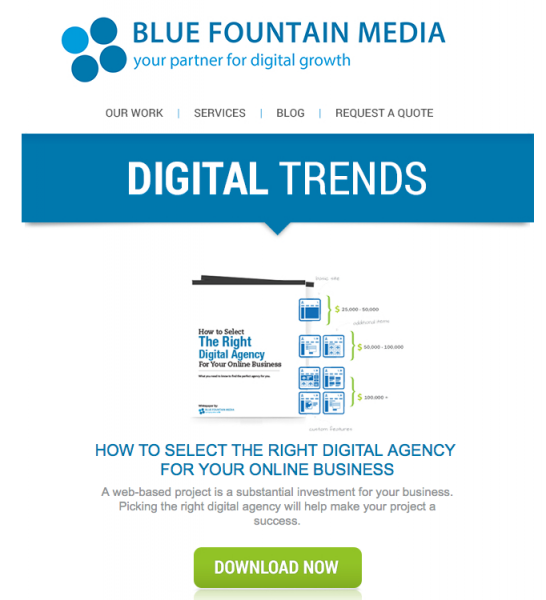
The email helps people learn how to select a digital marketing company via a downloadable 16-page white paper. You want to educate and nurture your new contacts at this stage, Paley says, and this kind of educational email does just that.
4. Promotional email
A few weeks into your email courtship, sending a promotional email is a nice gesture. It’s the equivalent of getting flowers from that new person in your life. It’s a nice way to say, ‘I’m thinking of you.’ Maybe the email contains a gift of some kind, a free consultation, a 20% off coupon or an invitation to a friends-and-family sale that only email contacts can access.
Here’s an example of a friends-and-family email:
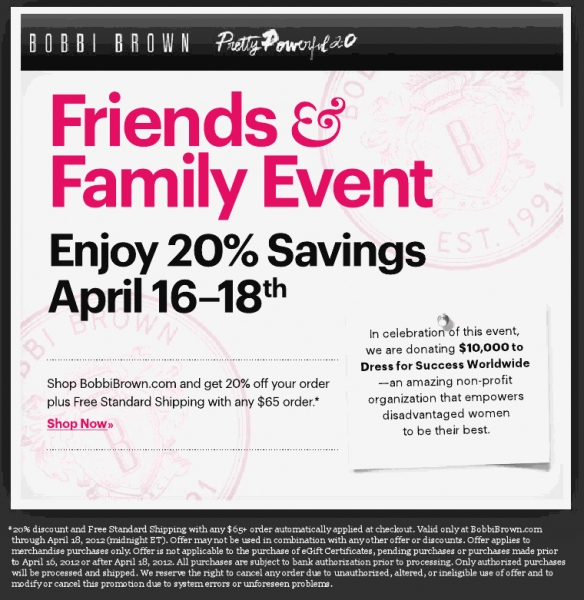
This email is for an online retailer, but if you have a storefront you can certainly invite people to come to your business. If that’s the case, encourage recipients to print the email or show it to you on a smartphone for an additional in-store benefit.
The takeaway message is to spend some time engaging with your new contacts. They deserve a little extra attention and with these four emails you’ll set the tone for a lasting relationship.
How do you reach out to new contacts? Share it with us in the comment section below.
Business Articles | Business 2 Community
(406)
